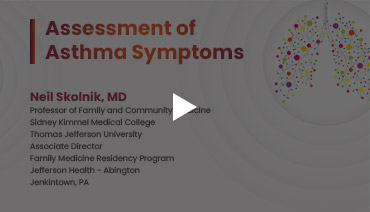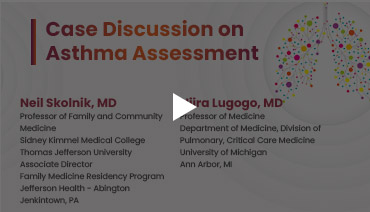Education & Discussion Guides
View these video modules on important topics covering the assessment of asthma control and the recognition of severe asthma to identify patients who may require referral to a specialist. There are also patient cases featuring expert insights and discussion points that you can apply in your practice as well as practical tools aligned with each content topic.
Do you want to bring this education to your team? Utilize the downloadable discussion guides and slide decks listed below the videos! An additional video on adult learning principles and presentation tips is provided to help you develop and lead sessions with your team.

Get tips to help you deliver compelling education to your team
Clinical Tools
Use these clinical tools and resources to enhance your clinical practice and supplement the education.
Clinical Tools
- Asthma Assessment Tools
- GINA Guidance on Investigating Difficult-to-Treat Asthma
- Closing the Referral Loop
- EMR Integration Tool
Process Development
- IHI Recommendations for Closing the Referral Loop
- Study on Closing the Referral Loop
- AHRQ: Care Coordination
- AHRQ: Care Coordination Quality Measure
- CMS MIPS: Asthma Control Quality Measure
- Examples of Primary Care and Specialty Interface
Training
- GINA Severe Asthma Guide
- GINA for PCPs
- Inhaler Device Selection and Technique
- Respiratory Inhalers
Interested in participating in a digital quality improvement program? You’ll complete an assessment to understand where your practice’s performance falls relative to available evidence and guideline recommendations, and then develop a personalized action plan to create changes in practice.
Not interested in participating in this digital QI but want to view condensed CME with tools and resources?
Hear from Dr. Lugogo on why QI is essential for impactful care of patients with severe asthma:

QI programs are valuable to clinical practice because they allow us to pause and take a minute to determine whether our patients are getting the best quality care. They allow clinicians to have a moment of introspection about how patients are doing, to learn cutting edge information, and to determine what steps should be taken to implement practice change to improve patient outcomes.






